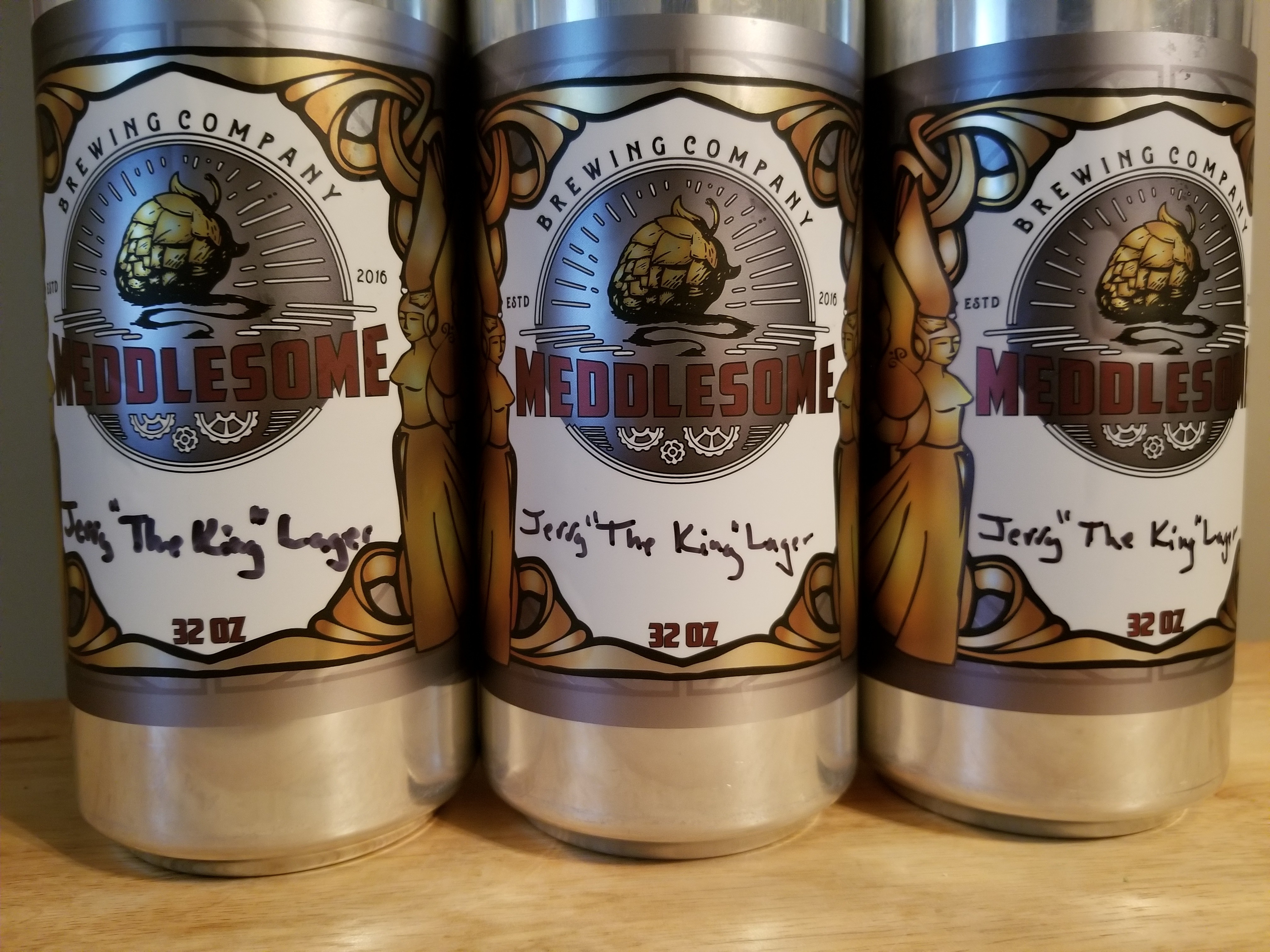
Watch out Budweiser, the “King of Wrestling” is coming for your throne as the “King of Beers.” This week, Memphis-based Meddlesome Brewing Company is rolling out its newest offering: Jerry “The King” Lager.
“A while back I was contacted by someone from the brewery who explained to me they make beers with names that are familiar with Memphis,” Jerry Lawler said. “One was 201 Hoplar and they had the idea to do a Jerry ‘The King’ Lager. I thought it sounded fun, so I gave them the go ahead to use my name.”
Lawler, who prides himself on never having a sip of alcohol in his entire life, now has a beer named in his honor to go along with his bar located on the drunkest street in town. When asked if he would end his 68 years of sobriety to taste the beer named in his honor, the King said “I’ve never tasted beer, wine, or whiskey in my life and I’m not going to start just because one’s named after me.”
(I did get a chance to sample Jerry “The King” Lager last Saturday live on the radio. Listen here for my taste test.)
Available for a limited time, Jerry “The King” Lager will make its debut at Jerry Lawler’s Hall of Fame Bar & Grille during a Monday Night Raw watch party featuring a meet and greet with WWE Hall of Famer Mick Foley.
Starting Wednesday, the lager will be on tap at the brewery’s taproom, which is conveniently located for wrestling fans wanting to spend a day in Cordova. According to Google Maps, Meddlesome Brewing is just a two-minute drive to the King’s other restaurant- Jerry Lawler Memphis BBQ Company. You can’t buy Meddlesome beers in stores yet; however the taproom will offer the beer “to go” in 32-ounce cans and 64-ounce growlers.
Meddlesome is not the first Memphis-area brewery to embrace the Bluff City’s relationship with pro wrestling. Memphis Made Brewing’s taproom has a Royal Rumble pinball machine and often serves as the host venue for my regular Rasslin’ Trivia Nights. Wiseacre Brewing has made some short-lived wrestling-themed adult beverages (a taproom-only release of Sandy Ravage’s The Cream and an experimental keg of Cocoa B. Ware Brown Ale), and they spotlighted Memphis wrestling as the theme of their annual mural outside their brewery in 2015.
For those local brewmasters looking for a Memphis rasslin’ inspired name for your next beer, I present to you this list (insert Chris Jericho joke here) free of charge:
- “SuperStout” Dundee
- Double J Double IPA
- Dave Brown Ale
- Mr. Coffee Stout
- USWAle
- Banana Nose Wheat Ale
- “Stout of the South” Jimmy Malt
- Plowboy Porter
- Jackie FarGolden Ale
- Mid-South ColiSasion
Listen to Kevin Cerrito talk about pro wrestling on the radio every Saturday from 11-noon CT on Sports 56/87.7 FM in Memphis. Subscribe to Cerrito Live on Apple Podcasts, Google Play, tunein, PlayerFM or Sticher. Follow him on Twitter @cerrito.